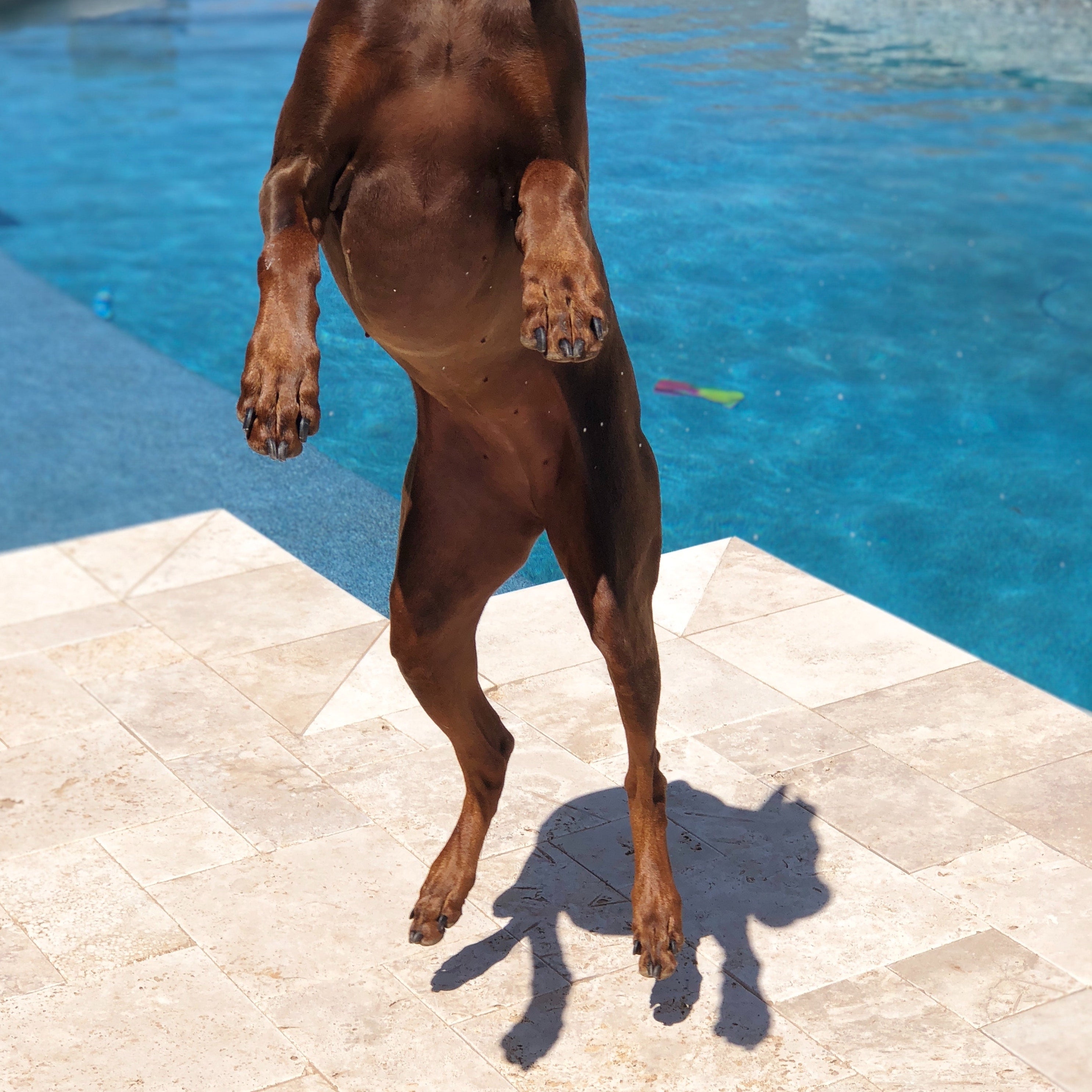- Total €0,00
Understanding and addressing excessive paw licking in dogs
While licking your fingers after a delicious meal is generally a sign that it was very tasty, the same cannot be said for dogs. Although paw licking is a common and usually normal behavior among most animals, including dogs, excessive paw licking can be a sign of an underlying problem. In some cases, it may be related to a medical condition, while in others, it may be due to stress, anxiety, or boredom. Understanding the root cause of excessive paw licking in dogs is crucial to know how to read these signs, interpret what your dog is trying to tell you, and to know how to address the issue effectively. This is why we are here to explore the common reasons why dogs excessively lick their paws and provide you with some tips on how to prevent or manage this behavior.
Self-grooming
When thinking about animals that groom themselves, dogs may not be the first ones that pop to mind. Nevertheless, dogs sometimes engage in self-grooming by licking their paws, legs, and tail to eliminate dirt. This is a typical and beneficial behavior that indicates a dog's desire to maintain cleanliness, despite their apparent resistance during bath time.
Lack of activities
Although any type of dog can experience boredom, it is more common in working breeds such as German Shepherds, Golden Retrievers, Great Danes, Irish Setters, Labrador Retrievers, Pointers, and others. When they become bored, dogs may engage in self-distracting behaviors like excessive licking.
Skin irritation
One of the main reasons why dogs may excessively lick their paws is dry or itchy skin caused by environmental allergies. These allergies can be triggered by various elements such as certain grasses, weeds, and dust, which can result in skin irritation and dry paws. Other symptoms such as sneezing, swollen eyes, or a runny nose may indicate that a dog is suffering from allergies. To alleviate symptoms related to environmental allergies, it's important to keep your dog clean. However, it's recommended to consult a veterinarian to confirm whether the pet is indeed suffering from an environmental allergy.

But also, just like people can have food allergies, dogs may also feel an uncomfortable sensation on their paws due to this type of allergy. If the dog food or treats contain ingredients like dairy, wheat, soy, beef, or chicken, they can trigger allergic reactions, causing the dog to excessively lick their paws to soothe the feeling of discomfort. If this behavior is only observed after meals or with certain foods, it may indicate a food allergy. If this is the case, you should choose an appropriate diet for your pet's needs that won't trigger allergic reactions. And make sure you always read the label on dog food and treats to avoid ingredients that may cause allergies.
Pain and suffering
If you notice that your dog suddenly licks just one paw, the first thing to do is to examine the paw for any signs of injury, such as a cut, torn nail, or foreign object like a stone, thorn, or ice ball stuck between the pads. Closely check the nails, the spaces between the toes and pads, and the top of the feet. It is also possible that your dog has irritated its paw by stepping on a sharp object, walking on hot or salted sidewalks, getting stung by a bee, or by developing a blister. Some of these issues can be treated with simple first aid at home, while others may require medical attention from a veterinarian.
Parasites
Dogs typically explore the world on all fours, which makes their paws a natural target for parasitic critters. Fleas, ticks, lice, and mites are some of the parasites that can irritate your dog's skin, causing them to lick the affected area. While the parasites may be concentrated on one paw, your dog may also lick or scratch other body parts, which is a common sign of a parasitic infestation. Parasites are often found in grassy or wooded areas, so if a dog regularly walks or plays in such environments, you may want to change your routine to avoid further infestations. And to address the issue, carefully check your dog's skin for signs of pests and seek advice from your veterinarian.

Anxiety
Excessive paw licking can be a sign of anxiety and can cause discomfort and even infection if it’s left untreated. Understanding the root cause of the anxiety is crucial in addressing this behavior. That is why it's important to identify any potential triggers that may be causing a dog's anxiety, such as separation anxiety, fear of loud noises, or changes in their environment. Once the underlying cause has been identified, you can begin to address the behavior through a combination of training, behavior modification, and possibly medication. In addition to addressing the anxiety, it's also important to provide a dog with alternative ways to cope with their stress. This can include providing them with interactive toys, engaging in regular exercise, and creating a calm and safe environment. By taking a proactive approach to understanding a dog's excessive paw licking behavior, you can help it feel more comfortable and relaxed, and improve its overall well-being.
In conclusion, while paw licking is usually normal behavior in dogs, excessive paw licking can be a sign of an underlying problem. It could be related to a medical condition, stress, anxiety, boredom, allergies, parasites, or other factors. It is important to identify the root cause of the behavior and take appropriate steps to address it. This may involve consulting a veterinarian, changing a dog's diet, providing interactive toys and exercising regularly, creating a calm and safe environment, and possibly medication. By understanding and addressing excessive paw licking, every pet owner can help their dog feel more comfortable, relaxed, and improve their overall well-being.


